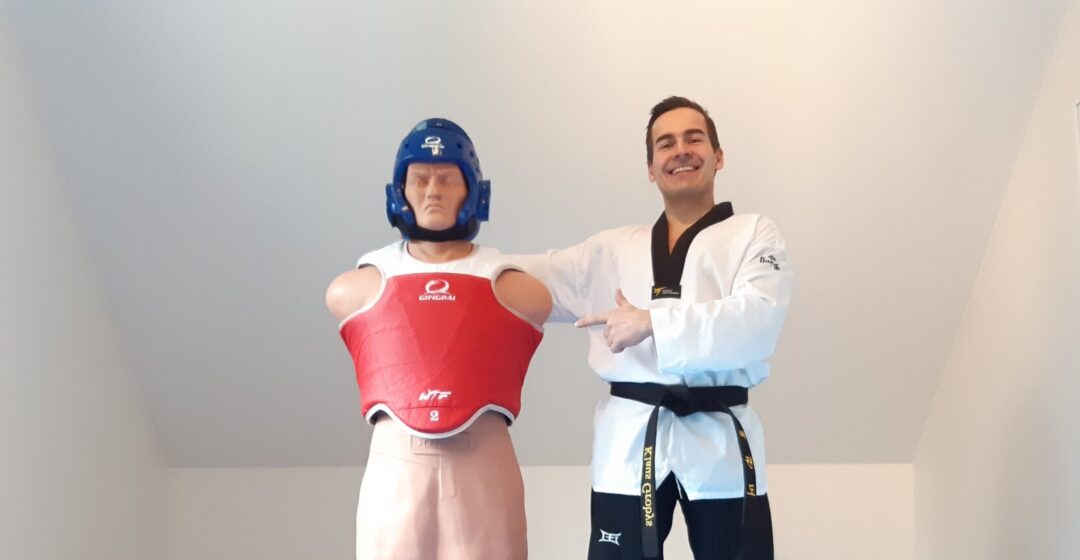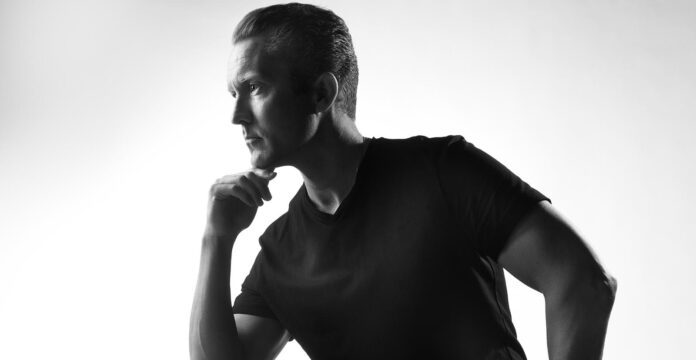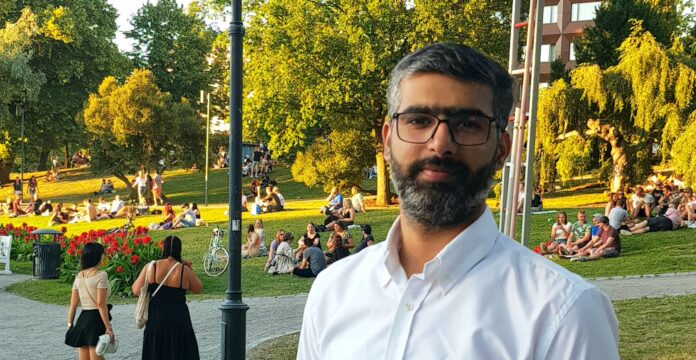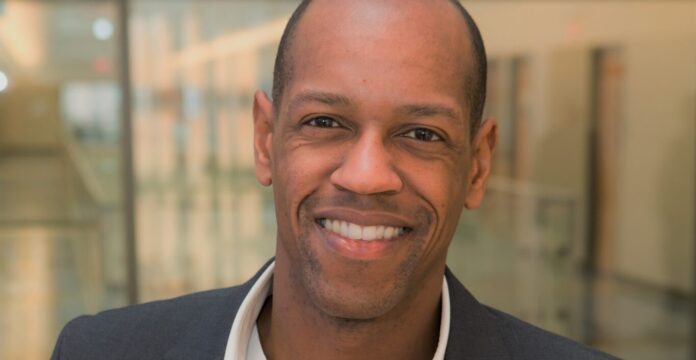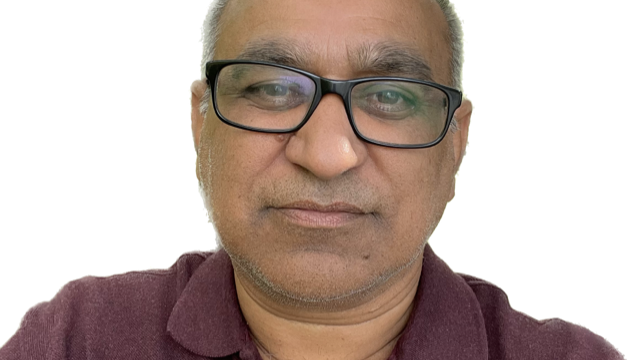Image: “Me and my favorite MMA trainings tool XXL Bob in my own dojo at home in Kuni.”
This series introduces the members of University of Vaasa’s InnoLab research platform. Today we’re meeting Klaus Grobys.
What are you?
Docent in financial economics, Swedish champion in Fitness Five, black belt in taekwondo and a passionate taekwondo athlete.
What exactly do you do?
I am an assistant professor of finance on a tenure-track, and my tasks involve research related to FinTech, teaching, developing courses, applying for external funding, supervision of students on all levels, writing blogs, talking to the media and much more.
Sounds like a lot of work. Why bother?
Well, I am interested in research and especially figuring out how new digital financial markets work. What are the opportunities and risks in these new markets? Fraud is unfortunately a big issue in the digital environment, as people can easily hide behind their anonymity and their cellphone screens. So, how can we identify fraud as early as possible and by this protect investors?
I also think curiosity and creativity are the trademarks of a successful researcher, and extroversion and enthusiasm are the trademarks of a good teacher. I think that I have those personality traits and academia is the right place for me.
Sounds about right – but how did you end up where you are now?
Before university, I did a three-year apprenticeship as a bank clerk. During that time, I learnt a lot about the banking business. My original plan had been to stay in the finance industry and learn more through internal training. However, I recognized that most people in leading positions had a degree from a university. Moreover, I wanted to learn as much as possible. So, I decided to study at the German university with the highest reputation in economics and quantitative research. My employer immediately offered me a permanent employment contract, but I sacrificed the security of employment for education.
After finishing my degree at the University of Kiel in Germany, I worked as a teacher at a vocational school in Hamburg, but I recognized after a couple of months that I wanted to apply my knowledge. I was pretty happy when I got a job as a risk analyst in Stockholm and quit my job as a teacher. I applied for the job at the right time because the bank, Klarna AB, was looking for someone who was fluent in both German, Swedish and English.
My task at Klarna AB had been to integrate all working processes from the Swedish market to the German market. Everything I did in the past somehow paid off. I ran many projects at Klarna and implemented new working processes in managing our exposure to merchant risks.
I earned quite a bit of money during the stock market crash in August 2011: my portfolio had been short on the DAX30 and OMX30 since May. In doing so, I was using financial derivatives with high leverages. My interest in stock markets increased in the wake of that event, and I wanted to gain a more sophisticated understanding of finance. This brought me to the doctoral program of finance at the University of Vaasa.
Quite the ride! Now, imagine your phone rings. It’s the call you’ve been hoping for – what is it about?
Of course, it’s the editor from the Journal of Financial Economics telling me that my research article will be the lead article in the next journal issue.
Just kidding, it’s actually a journalist. They’re finally doing a story on that one topic you’ve always wanted to give an interview on! What do you say?
Actually, I just gave my dream interview on cryptocurrencies to the Finnish business magazine Vaasa Insider. You can read the story online:
Lucky you! Too bad you can’t be the resident expert on every topic. What would you like to learn more about?
I would like to learn more about financial derivatives and FinTech. FinTech is an emerging new field that is growing at a fast pace and every day there are new things to learn. I am also interested in statistics and especially econometrics as a science. I published one article on econometrics and it took a lot of time. Nowadays we academics are forced to publish at a high frequency, and therefore research in certain areas – that simply take a lot of time – are often postponed.
Sounds like a problem for academia. Is that something I should be concerned about?
Well, I think so. It’s about motivation. Researchers who are personally interested in something perform well simply because they are motivated from the inside. Psychologists call this “intrinsic motivation”. They have “skin in the game”. If researchers instead choose topics that are easier to execute and to publish – since they know they are forced to publish because otherwise they’re running the risk of losing their jobs – their motivation is rather external. As they have no “skin in the game” who knows what they actually are producing. There are many articles published that fail replication. That’s an issue that is unfortunately found across sciences, not only in Economics. This happens when academia becomes a competitive industry.
Okay. Now recommend me something – anything!
As long as you’re young you should download as much knowledge as possible in your mind. That’s actually advice from my former vocational school teacher, and I have found it very useful in my life.
Any last advice for being both an effective researcher and a happy office worker?
Well, if one wants to achieve both maximum happiness and maximum effectiveness then one should get oneself a supporting partner on one’s side. Otherwise, I think it’s very important to get along with your colleagues at work and to joke with each other. It’s important to have a good atmosphere at work and to consider your colleagues as companions rather than competitors.
From the perspective of Klaus’ colleagues: If Klaus was an animal, what animal would he be?
“If Klaus was an animal, he would be a cheetah because he seems like a determined, clever and sports loving person.”
“I think the African wild dog (Lycaon pictus) would suit Klaus. They are very persistent pursuit predators and highly successful hunters – and they form strong social bonds.”
“A fast and sharp-eyed peregrine falcon.”
